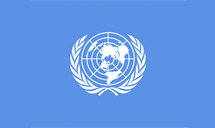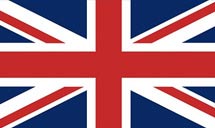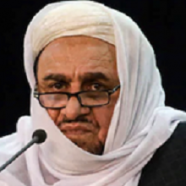Overview
Abdul Baqi Haqqani is a U.N.-sanctioned Taliban senior leader who held multiple positions under the first Taliban regime in the 1990s.“Security Council 1988 Committee Amends 105 Entries on Its Sanctions List,” United Nations, November 29, 2011, https://www.un.org/press/en/2011/sc10465.doc.htm. Following the Taliban’s takeover of Afghanistan in August 2021, Haqqani was named minister of higher education of the Taliban government.“Taliban forms 33-member cabinet in Afghanistan: Full list,” Hindustan Times, September 8, 2021, https://www.hindustantimes.com/world-news/taliban-forms-33-member-cabinet-in-afghanistan-full-list-101631066722518.html.
Haqqani is a veteran of the Taliban movement, initially serving as the governor of Khost and Paktika provinces under the first Taliban regime in the 1990s. Following that role, Haqqani was appointed vice-minister of information and culture until the Taliban’s fall from power in 2001.“ABDUL BAQI BASIR AWAL SHAH,” United Nations Security Council, February 23, 2001, https://www.un.org/securitycouncil/sanctions/1988/materials/summaries/individual/abdul-baqi-basir-awal-shah. Given Haqqani’s role within the Taliban, the United Nations Security Council sanctioned Haqqani on February 23, 2001, and the U.K. Office of Financial Sanctions Implementation sanctioned Haqqani on April 2 of that year.“Security Council 1988 Committee Amends 17 Entries on Its Sanctions List,” United Nations, August 13, 2012, https://www.un.org/press/en/2012/sc10742.doc.htm; “CONSOLIDATED LIST OF FINANCIAL SANCTIONS TARGETS IN THE UK,” Office of Financial Sanctions Implementation HM Treasury, February 1, 2021, https://assets.publishing.service.gov.uk/government/uploads/system/uploads/attachment_data/file/957420/afghanistan.pdf.
In 2003, Haqqani was involved in anti-government military activities throughout the districts of Shinwar, Achin, Naziyan, and Dur Baba in Nangarhar Province, eventually being responsible for the entire province in 2008. By 2009, Haqqani organized militant activities throughout the eastern region of Afghanistan, with particular focus on Nangarhar and Jalalabad City.“ABDUL BAQI BASIR AWAL SHAH,” United Nations Security Council, February 23, 2001, https://www.un.org/securitycouncil/sanctions/1988/materials/summaries/individual/abdul-baqi-basir-awal-shah.
On August 6, 2021, the Taliban began an offensive against major Afghan cities with the seizure of Zaranj, capital of Nimruz province.Susannah George and Ezzatullah Mehrdad, “Taliban fighters overrun an Afghan provincial capital for the first time since withdrawal of foreign forces,” Washington Post, August 6, 2021, https://www.washingtonpost.com/world/2021/08/06/afghanistan-taliban-nimruz/. By August 13, the Taliban controlled 17 of Afghanistan’s 34 provincial capitals and more than two-thirds of the country.Rahim Faiez, and Joseph Krauss, “Taliban sweep across Afghanistan’s south; take 4 more cities,” Associated Press, August 13, 2021, https://apnews.com/article/middle-east-taliban-c6c8d4a41c554f36031a8131538d1402. On August 15, Afghan President Ashraf Ghani fled Afghanistan and thousands of Afghans poured into Kabul’s airport as Taliban fighters entered the city. By August 16, the Taliban laid siege to the presidential palace and took complete control of Kabul, after which the Taliban declared the war in Afghanistan had ended.“Taliban declares ‘war is over’ as president and diplomats flee Kabul,” Reuters, August 15, 2021, https://www.reuters.com/world/asia-pacific/talibans-rapid-advance-across-afghanistan-2021-08-10/. The Taliban has claimed that it would take on a more “moderate” approach in their ruling of the country, and that women are allowed to have roles in public life in observance of “Islamic law.”“Factbox: Taliban seek to present a moderate face as they take control in Afghanistan,” Reuters, August 15, 2021, https://www.reuters.com/world/asia-pacific/taliban-seek-present-moderate-face-they-take-control-afghanistan-2021-08-15/.
Following the Taliban’s takeover of Afghanistan, Haqqani appeared at a news conference on August 31, 2021, where he stated that women would be allowed to study at universities under Taliban rule, but classrooms would be segregated by gender and Islamic dress would be mandatory. Haqqani stated, “the people of Afghanistan will continue their higher education in the light of Sharia law in safety without being in a mixed male and female environment.”Emily Crane, “Afghan women can study at university but not with men: Taliban,” New York Post, August 31, 2021, https://nypost.com/2021/08/31/afghan-women-can-study-at-university-but-not-with-men-taliban/. Haqqani later reiterated this restriction at a news conference on September 12 in Kabul, further claiming that only female teachers would be allowed to teach female students.“Taliban: Women Can Study in Gender-Segregated Universities,” Voice of America, September 12, 2021, https://www.voanews.com/a/taliban-women-can-study-in-gender-segregated-universities/6223214.html. Additionally, Haqqani claimed Taliban officials would conduct a curriculum review, which media sources believe will be in line with the group’s fundamentalist Islamist code.Ezzatullah Mehrdad, Gerry Shih, and Miriam Berger, “Taliban minister says women can attend university, but not alongside men,” The Washington Post, September 12, 2021, https://www.washingtonpost.com/world/2021/09/12/afghanistan-taliban-women-education/.
On September 7, 2021, the Taliban announced the official appointments within their caretaker government. Akhund was appointed minister for higher education.“Taliban forms 33-member cabinet in Afghanistan: Full list,” Hindustan Times, September 8, 2021, https://www.hindustantimes.com/world-news/taliban-forms-33-member-cabinet-in-afghanistan-full-list-101631066722518.html. The government is exclusively male, with many positions filled with veterans from their hardline movement in the early nineties.Matthieu Aikins and Jim Huylebroek, “Taliban Appoint Stalwarts to Top Government Posts,” New York Times, September 7, 2021, https://www.nytimes.com/2021/09/07/world/asia/taliban-women-protest-kabul-afghanistan.html; Kathy Gannon, “Taliban form all-male Afghan government of old guard members,” Associated Press, September 8, 2021, https://apnews.com/article/middle-east-pakistan-afghanistan-arrests-islamabad-d50b1b490d27d32eb20cc11b77c12c87.
Associated Groups
- Extremist entity
- Taliban
- Read Threat Report
- Type(s) of Organization:
- Insurgent, regional, terrorist, transnational, violent
- Ideologies and Affiliations:
- Deobandi, Islamist, jihadist, Pashtun, Salafi, Sunni, Wahhabi
- Position(s):
- Minister for higher education of the Taliban government
The Taliban seized power in Afghanistan in August 2021 after previously leading a violent insurgency in Afghanistan and Pakistan. The group is closely affiliated with al-Qaeda.
History
United Nations

The U.N. Security Council sanctioned Abdul Baqi Basir Awak Shah as an individual associated with the Taliban on February 23, 2001.“Security Council 1988 Committee Amends 17 Entries on Its Sanctions List,” United Nations, August 13, 2012, https://www.un.org/press/en/2012/sc10742.doc.htm.
United Kingdom

The U.K. Office of Financial Sanctions Implementation sanctioned Abdul Baqi Basir Awak Shah on April 2, 2001.“CONSOLIDATED LIST OF FINANCIAL SANCTIONS TARGETS IN THE UK,” Office of Financial Sanctions Implementation HM Treasury, February 1, 2021, https://assets.publishing.service.gov.uk/government/uploads/system/uploads/attachment_data/file/957420/afghanistan.pdf.
Daily Dose
Extremists: Their Words. Their Actions.
Fact:
On May 8, 2019, Taliban insurgents detonated an explosive-laden vehicle and then broke into American NGO Counterpart International’s offices in Kabul. At least seven people were killed and 24 were injured.
